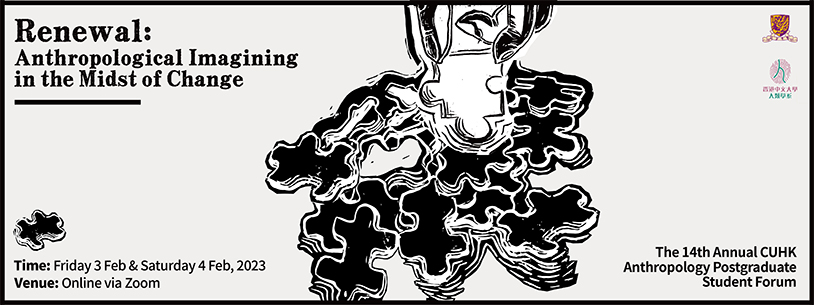Time: 9:15-11:05am Friday 3 Feb, 2023
Venue: NAH_115, CUHK
Or Join Via Zoom
https://cuhk.zoom.us/j/96146625017?pwd=V09QWkpJcXhDV29HTE9pbnBOUVh5UT09
Meeting ID: 961 4662 5017, Passcode: 758615
1. Brief Bio of Keynote Speaker
Harriet EVANS is Professor Emerita of Chinese Cultural Studies (University of Westminster) and Visiting Professor of Anthropology (LSE). She has written extensively on the politics of gender and sexuality in China, and on political posters and visual culture of the Mao era. Her main publications are Women and Sexuality in China: Dominant Discourses of Female Sexuality and Gender since 1949 (1997), Picturing Power in the People’s Republic of China: Posters of the Cultural Revolution (co-edited with Stephanie Hemelryk Donald, 1999), and The Subject of Gender: Daughters and Mothers in Urban China (2008). Her Beijing from Below: Stories of Marginal Lives in the Capital’s Center (Duke University Press) was published in May 2020. Another volume, titled Grassroot Values and Local Cultural Heritage in China (co-edited with Michael Rowlands) based on a three year research project funded by the Leverhulme Trust was published by Lexington Books in 2021. Evans is currently developed a new collective and multidisciplinary project on the cultural legacies of Chinese migration to Latin America since the long nineteenth century.
2. Keynote address Title & Abstract
The challenge of change: expectations of gender in urban transformation since 1949 in a disadvantaged neighbourhood of central Beijing
This talk reflects on how we might imagine the notion of change taking shape through the relationship between urban and gender transformation. My discussion focuses on Dashalar, the deprived inner city neighbourhood of Beijing that constitutes the spatial and social site of my study of urban change at the margins, in Beijing from Below. Rather than imagine urban transformation as a series of modes of governance and quantifiable plans and practices enacted on an urban population, whether supportive or resistant, I argue, following Doreen Massey, that the physical processes of transformation of space and place are in themselves social and cultural and therefore gendered processes. Indeed, it is impossible to imagine urban transformation or renewal as a set of practices that are not intrinsically social and cultural, inscribed in and mediated by the people who live them. I develop this argument with particular attention to the gendered positioning of both women and men in Dashalar. From an external analytical perspective, women there were caught in a paradox, on the one hand benefitting from the policies of gender equality (nannü pingdeng) of the decades of the Mao era, while simultaneously upholding reconfigured notions of patriarchy. In conditions of scarcity and precarity, this dual character of their gendered subjectivity shaped their emotional as well as remunerative labour as a form of social and familial care. Their menfolk, by contrast, contributed to the social and familial caring and welfare in part through their attachment to ideas of filial behaviour. For both women and men, an attachment to what we might describe as ‘traditional’ beliefs and practices, reconfigured by and in changing environments, was central to their identification as responsible persons. Throughout I reflect on the significance of this ethnographically based ‘micro-study’ for the big questions of historical progress and change, continuity and rupture.
|
